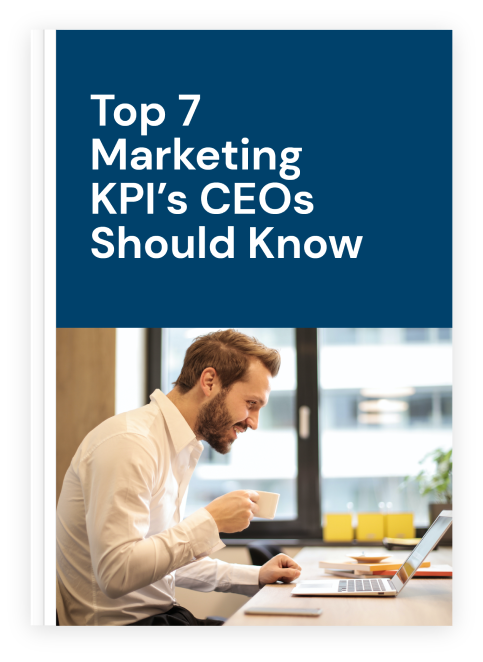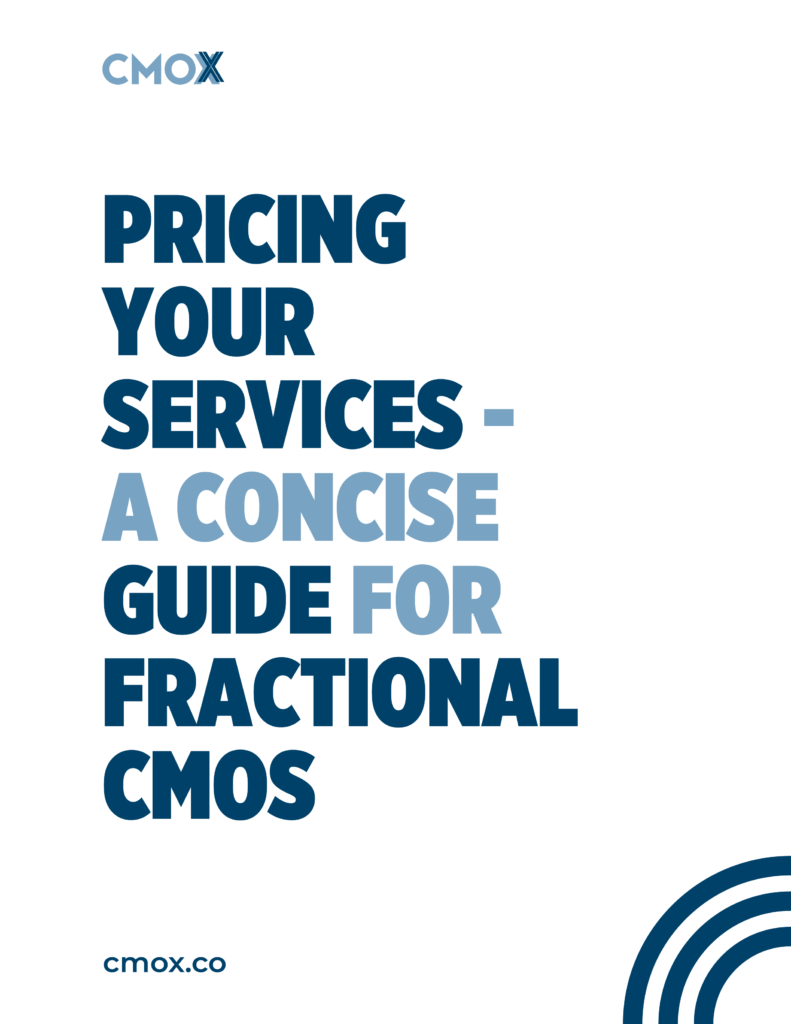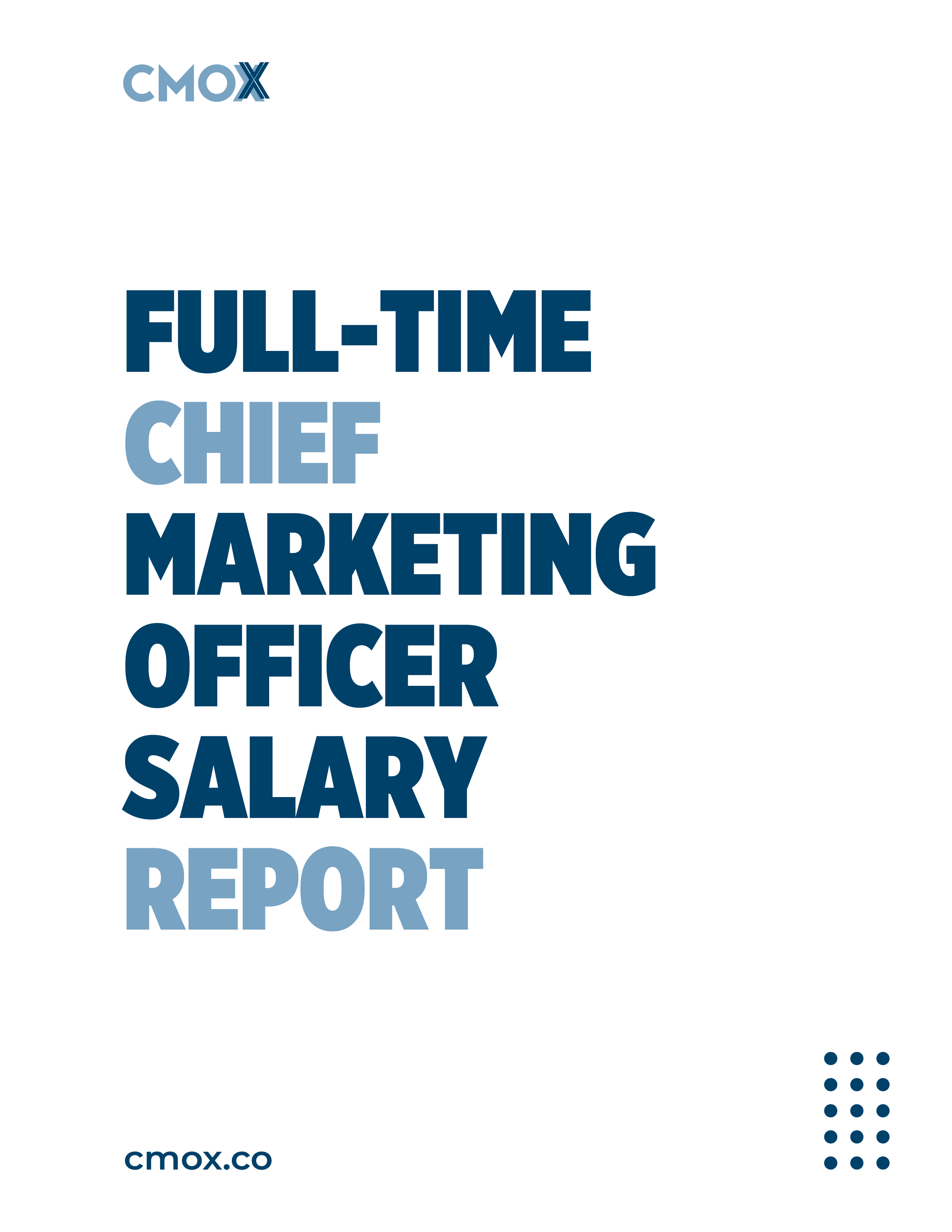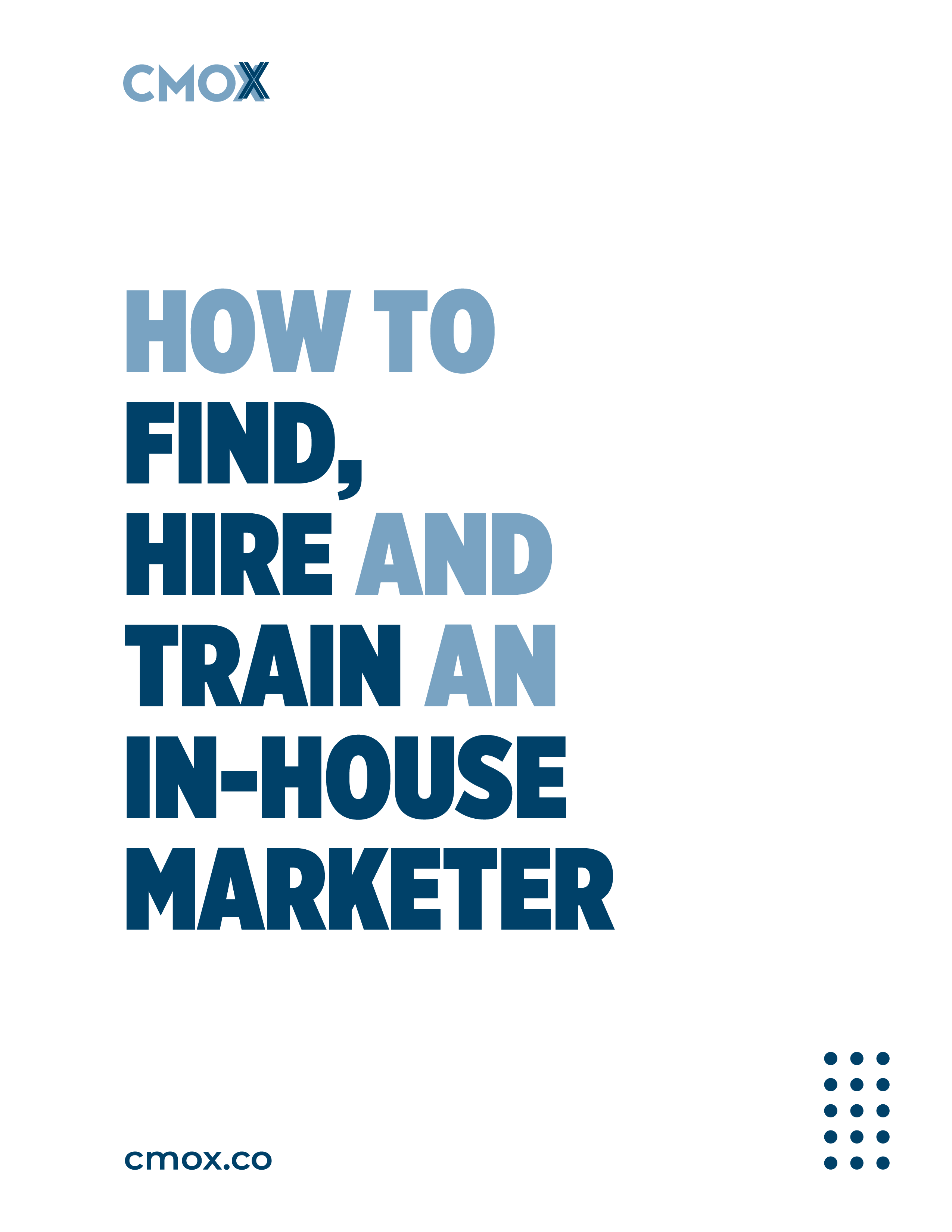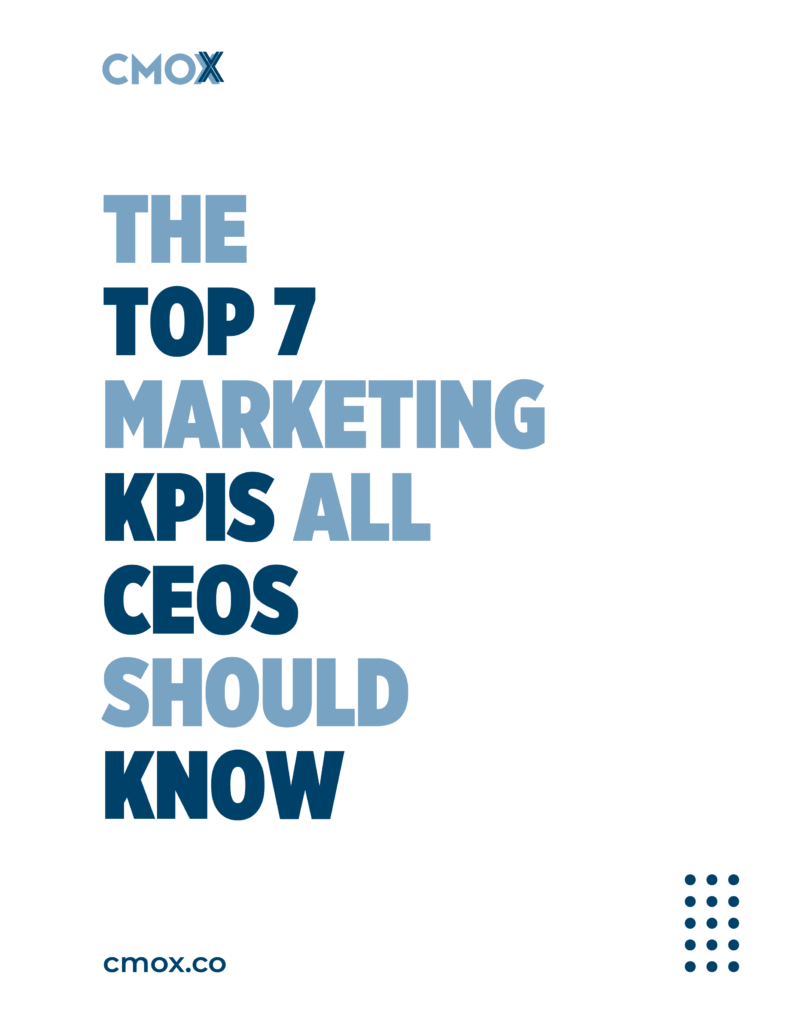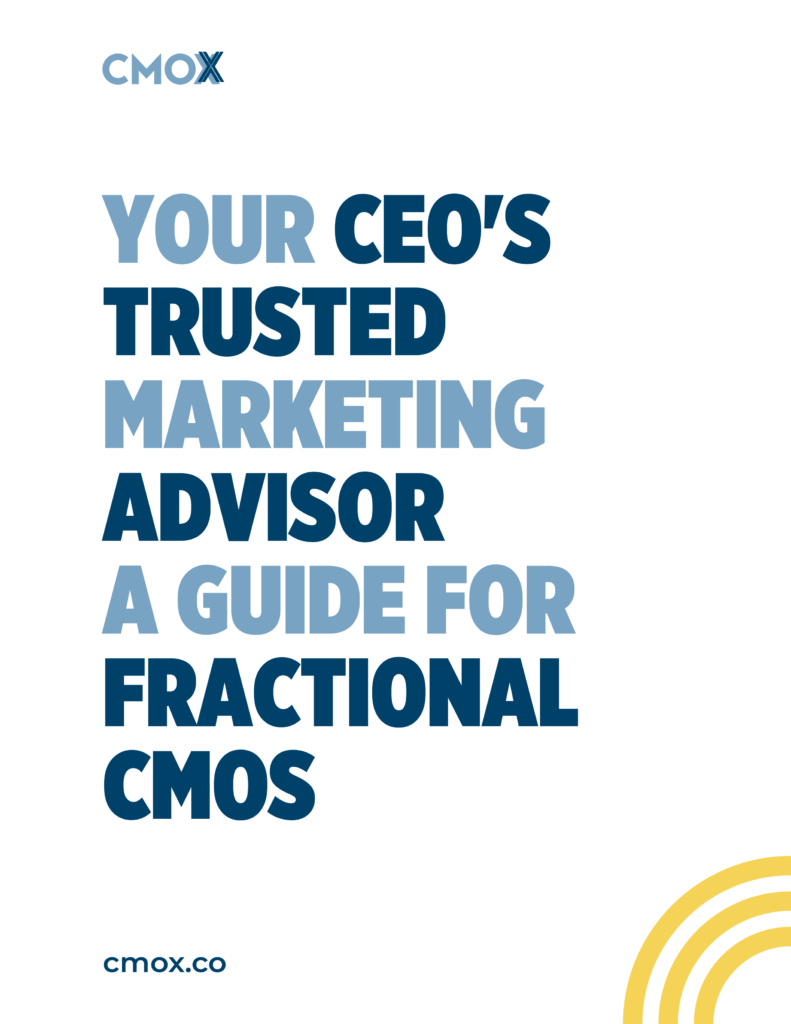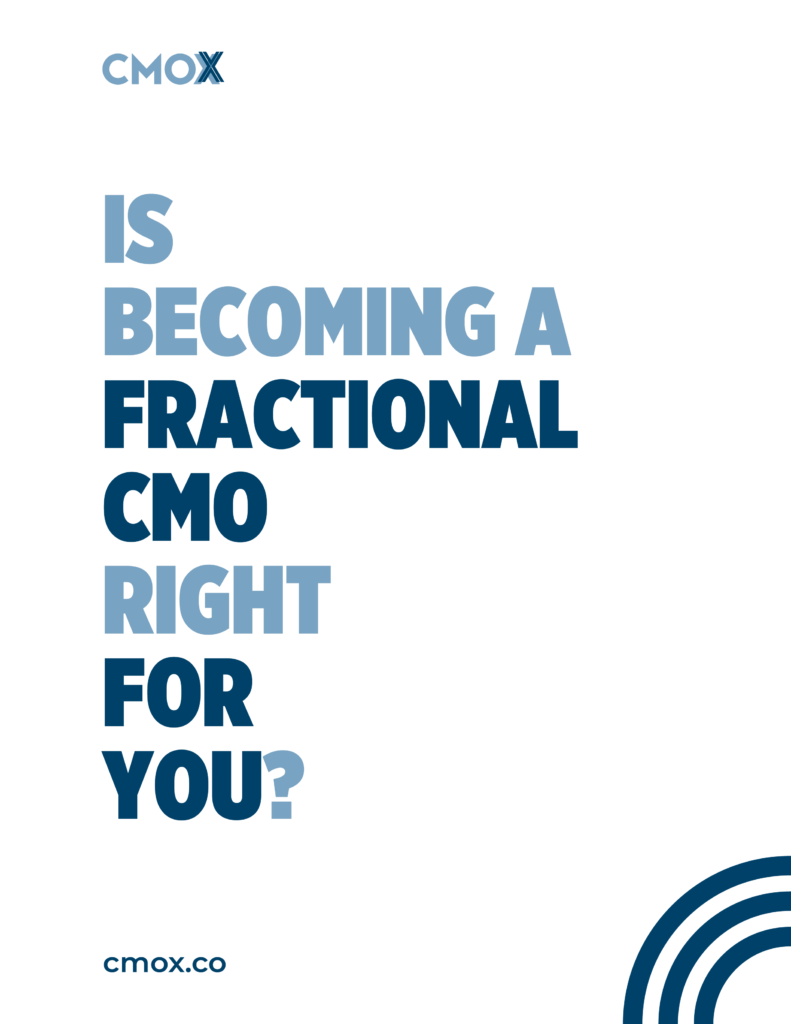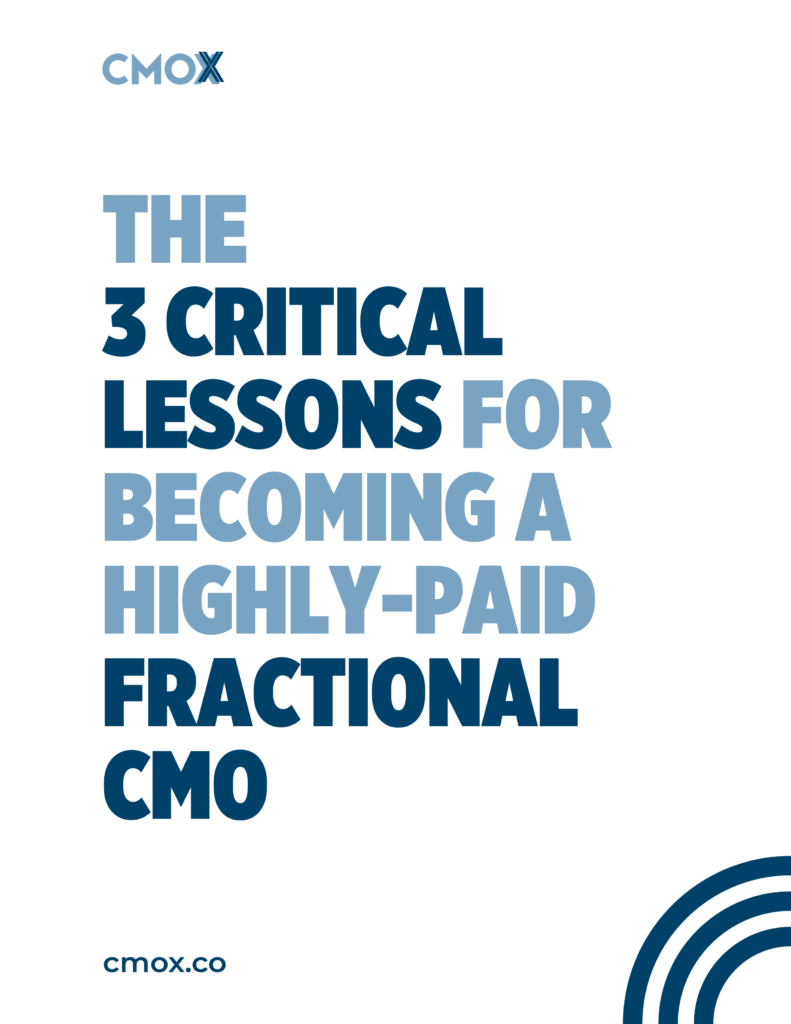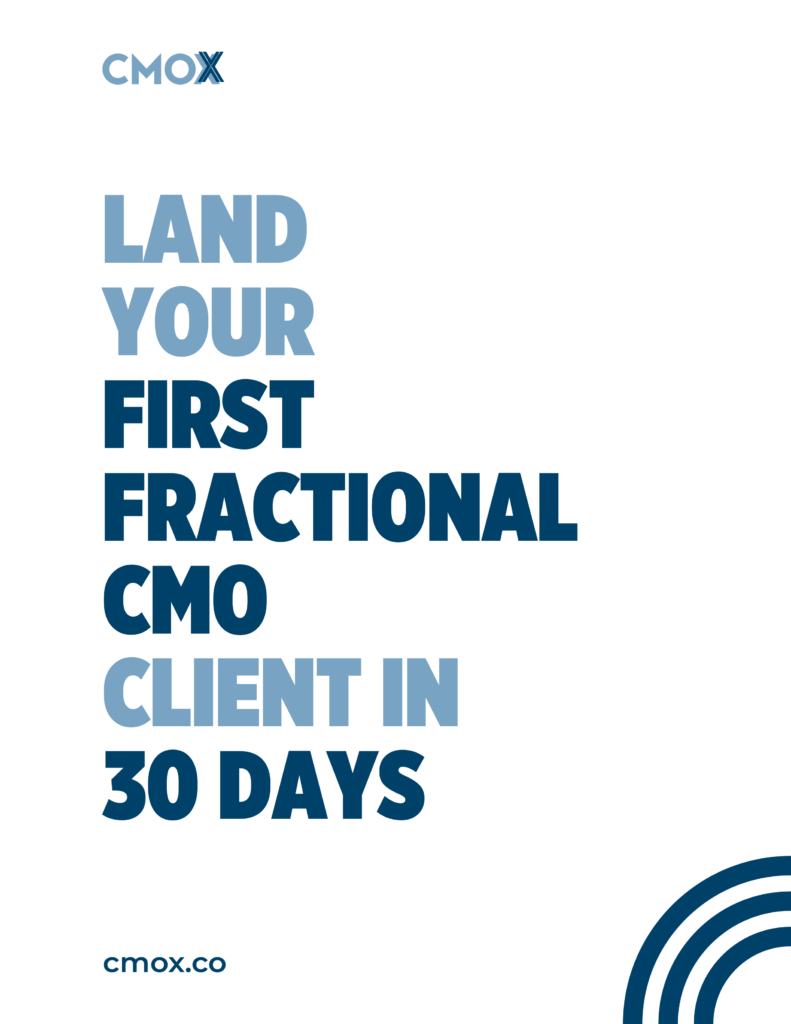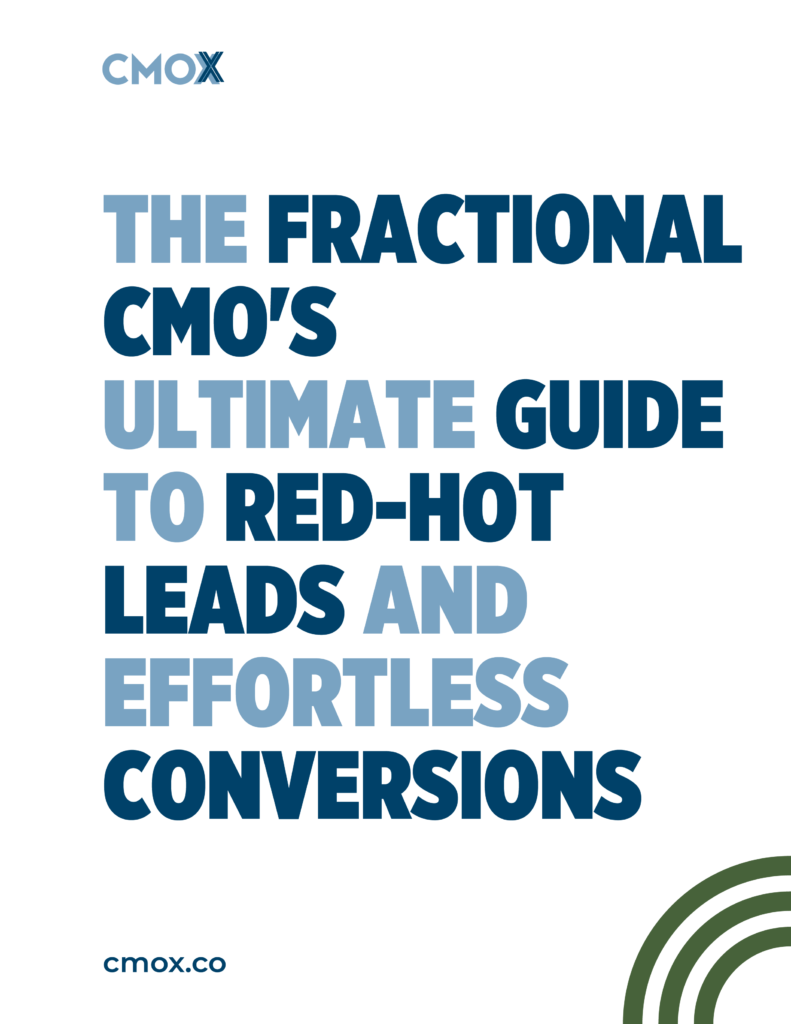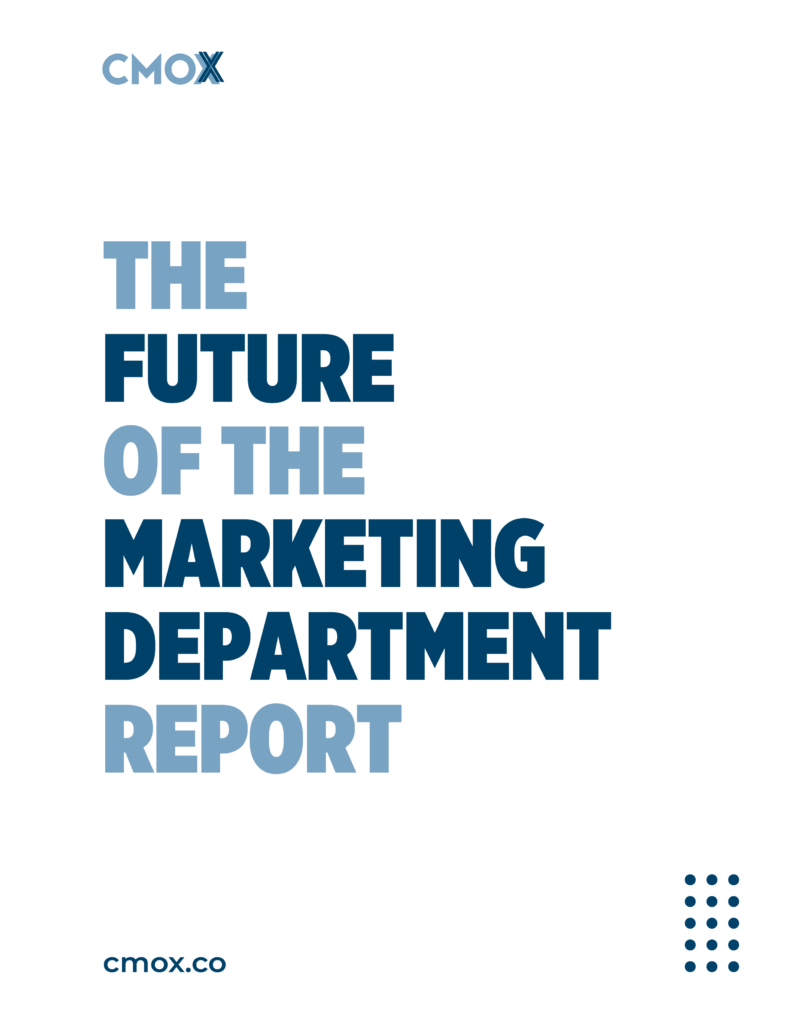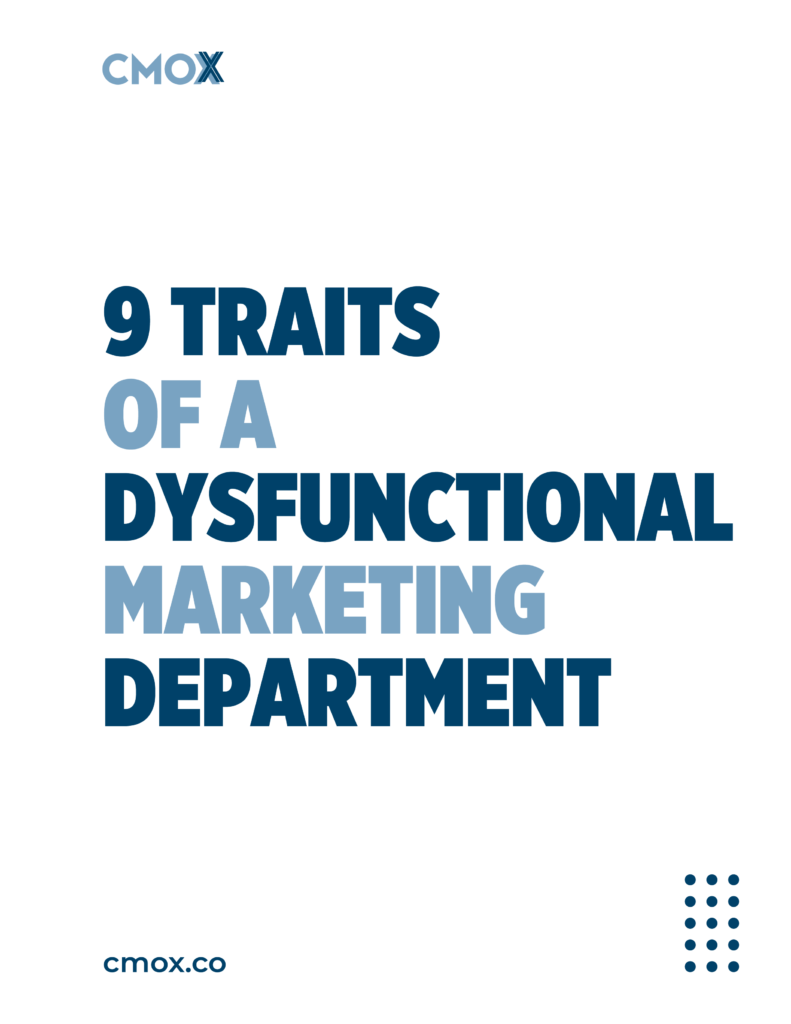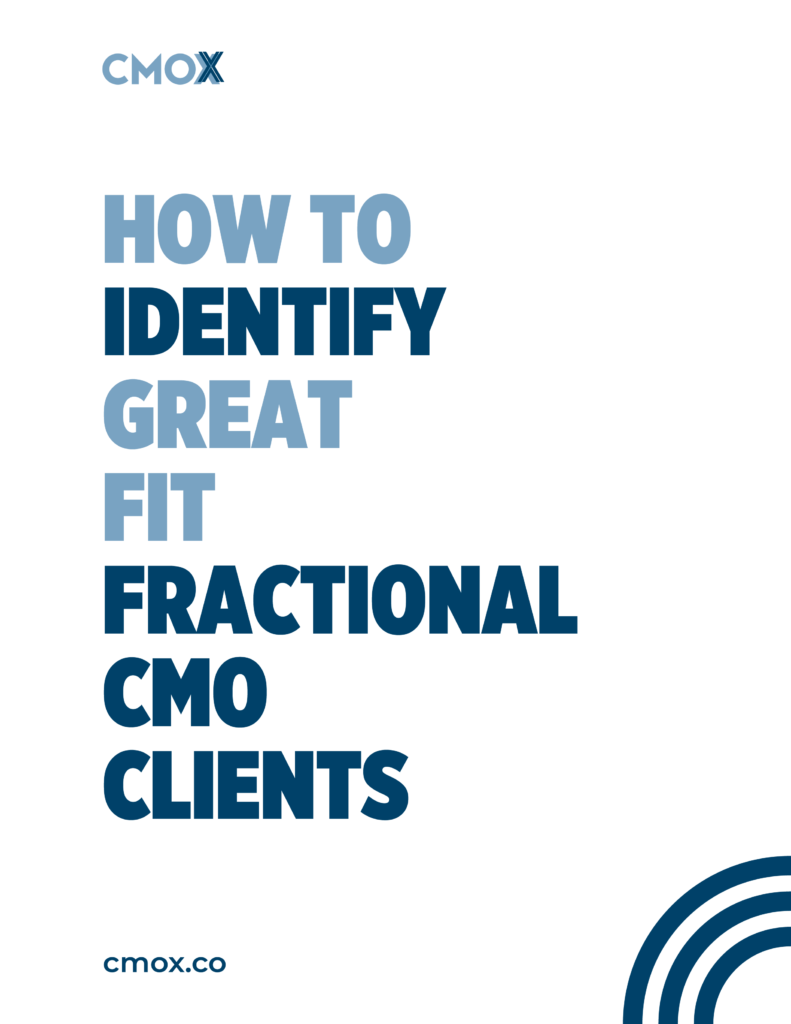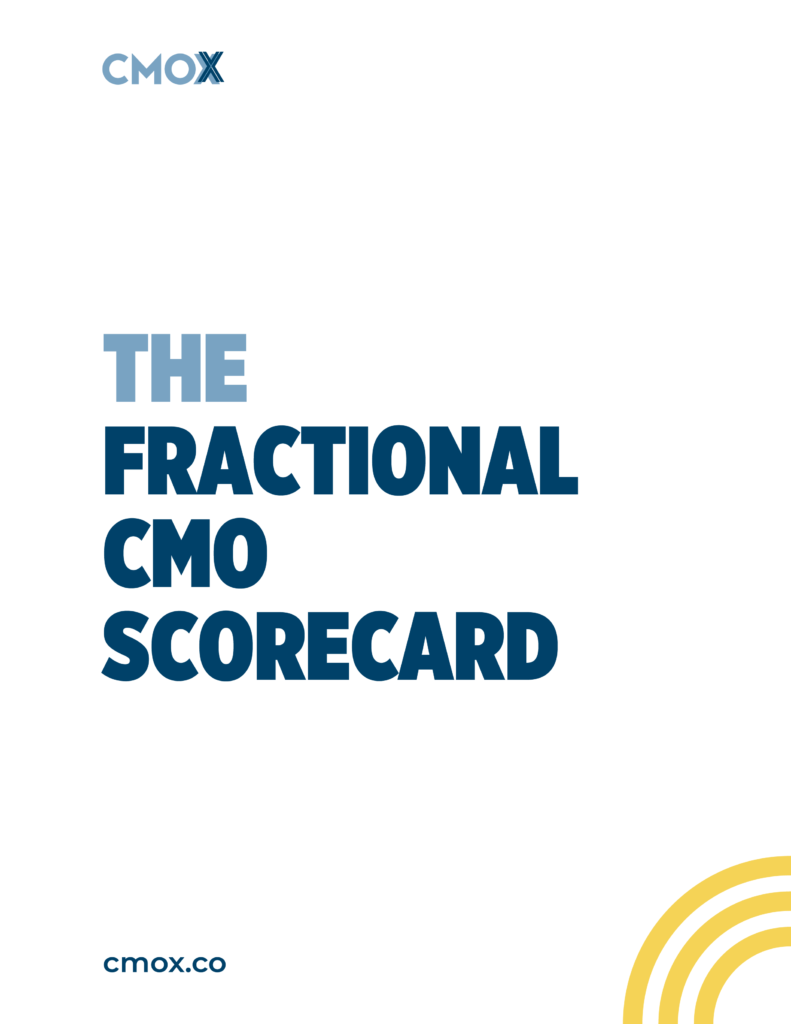Ep #104: Overcoming Objections during Sales Calls

In this solo episode of The Fractional CMO Show, Casey Stanton tackles one of the biggest challenges fractional CMOs face—overcoming sales objections. Drawing from real-world scenarios and personal insights, Casey walks through the most common pushbacks Fractional CMOs hear on sales calls—like “you don’t have experience in our industry” or “I could just hire a full-timer for that”—and shows you how to respond with confidence, clarity, and strategic positioning. Whether you're struggling to win your first client or scale into premium pricing, this episode is your playbook for navigating objections and winning high-value deals.

Episode highlights:
In this solo episode of The Fractional CMO Show, Casey Stanton tackles one of the biggest challenges fractional CMOs face—overcoming sales objections. Drawing from real-world scenarios and personal insights, Casey walks through the most common pushbacks Fractional CMOs hear on sales calls—like “you don’t have experience in our industry” or “I could just hire a full-timer for that”—and shows you how to respond with confidence, clarity, and strategic positioning. Whether you’re struggling to win your first client or scale into premium pricing, this episode is your playbook for navigating objections and winning high-value deals.
🔑 Key Topics Covered:
- Why industry-specific experience matters—and how to win without it
- How to position your transferable expertise in new niches
- Real-world examples of selling fractional CMO services across industries
- A simple mindset shift for charging what you’re worth
- How to navigate “You’re too expensive, I could hire someone full-time”
- Strategy vs. implementation (and why doing both is a trap)
- The 3 stages of the CMOx Accelerator: Sales Ready, Road to 10K, and Boardroom
- How one Boardroom member landed a $12.5K/month + 5% revenue-share deal
- Why the most successful CMOs are the ones solving bigger problems, not smaller tasks
Transcript:
00:00:00 Casey: In this episode, I’m gonna to walk you through some of the most common objections that our CMOs hear when they’re on sales calls talking to potential clients and how to overcome each one of them. Let’s do it.
00:00:13 Casey: Marketers of the world, why do we work hard to solve small problems? Why do we reinvent ourselves and our clients over and over? And why are we giving away marketing strategy for free? With advancements in AI, we’re all seeing the marketing department shrink from the bottom up, and companies need you to serve them as their fractional Chief Marketing Officer. It’s time to solve bigger problems and bring home a bigger paycheck. It’s time to create the lifestyle we deserve and to make a greater impact. This is the Fractional CMO Show, and I’m Casey Stanton. Join me as we explore this growing industry and learn to solve bigger problems as marketing leaders. The Fractional CMO Show is sponsored by CMOx, the number one company to teach you how to attract, convert, and serve high paying fractional CMO clients on your terms.
00:01:10 Casey: Hey, it’s Casey. If you’re listening to this, then you’re a fractional CMO or you’re thinking about being a fractional CMO and you want to figure out how to overcome objections. So one of the ways that I think about objections that business owners have is, this is kind of like a big idea, which is like, okay, I’m gonna take every objection you have, I’m gonna write them all down, and if I can systematically overcome each objection, will you sign the contract? Will you request a contract, agree to the terms, and can we get started on work? That kind of the idea. There’s more nuance to it than that, because we have to get them in emotional state. There’s just a lot more nuance. However, we do have to address objections where they make sense.
00:01:53 Casey: So, I’ve collected a couple objections that I’ve seen and I just wanna walk through them. So first one is, is for anyone who’s thinking like, I want to get into a new niche or industry. I’ve never been in this industry before, but I want to be there. Maybe your experience is exclusively in tobacco and you’re saying, “I don’t want to be in tobacco anymore.” Or maybe you’re saying I’ve only worked, you know, in this type of business and I want to be in this new, sexy, more fun type of business. Whatever. Cool, great. I would first of all say that there’s rarely a bad niche. I mean, very rarely I can think of two. Yeah, two niches that I think are troublesome. There are some cyclical niches that you want to just be mindful of. So what’s an example of a cyclical niche? I don’t want you jumping into a government funded programs right now because, you know, based on as I’m recording this in June 2025, a lot of those are under fire and they’re losing their funding. So that’s not a great place to be in an industry that relies exclusively on funding.
00:02:48 Casey: I think there’s some knock on effects of that with like higher education and there’s less cash that seems to be available from the government. I mean, we see all the stuff that’s happening with Harvard. And like, what does that mean for other universities? Are we gonna see less funding, federal funding for universities? And if so, what does that mean for them doing marketing stuff? So those are just considerations. Real estate’s a little funky. You know, when it’s good in real estate, it’s real good. And when it’s not good, it’s real bad. So you can be in real estate, but you might wanna hedge. What you do by having something that’s a little less risky kind of associated with real estate. Maybe you can find a way to do that. There’s more discussion around that.
00:03:24 Casey: But let’s just say you wanna get into a new niche or industry. And like I said, most of them are probably perfect for you because all you need is three to five clients paying you three to 15,000 a month. And like you’re done, right? You’re good. You can make your half million a year, working 30 hours a week. So you want to get into this new niche, but you don’t have experience in the industry. How do you handle it? How do you, how do you tackle it?
00:03:45 Casey: My approach is like, it’s better to have experience in the industry, bar none. When business owners come to our company and they say, “Hey, I wanna hire a fractional CMO. This is our company.” And we’re like, cool, great, yeah. They’re like, do you have… like, I wanna hire the best. I wanna hire the person who has the most experience, who’s been in the industry for years, right? They’re not saying like, I want someone on the outside who’s never really had experience. That’s just like the harsh reality of it. They want someone who’s been in the space for a long time. And if you haven’t, you have to then create some kind of dialogue around the work that you have done, so that you can talk to them in such a way that they believe that you’re able to help them. So, for example, and I did this for years. I didn’t work in the same industry. Oof, man, I… felt like a two or three year stretch. It was always new clients in new industries. I was in payment processing. I was in cannabis extraction equipment. I was in private equity commercial real estate. I was in B2B2B2C non-carrier embedded telemedicine. I was in health and fitness. I was in franchise. I was in… like I was all over the place. So I would always go back to the thing that I had, which was a process, an interest in the market, and a commitment to work really, really hard to figure it out. That’s kinda what you got. So you’re looking for similarities in what you’ve done to help someone else.
00:05:00 Casey: Like let’s say someone said to me, “Hey Casey, I want your help. We want to hire you to run our Botox clinics. We have 20 locations across the US and we want to scale Botox.” Like we want to, you know, get more locations and bring in more estheticians and all that stuff. Could I help them? Yes. How would I sell it? Well, I’ve never helped estheticians, but I’ve helped dentists. So I could say, well, I’ve helped other medical professionals like you with similar high tickets and we would attract, you know, higher revenue folks. That makes sense. People feel fine with that. The jump from like dentist to esthetician makes sense.
00:05:29 Casey: Then someone else might say… you know, you might not have like the dental experience. So what experience might you have? Maybe it’s just traditional B2B experience. And you say, “Well, first of all, I’m a customer of Botox, so I know it,” or my spouse is, or I really understand the market well. And you can understand the market pretty well if you just like, run a couple deep searches on Grok or Chat or Claude or whatever to figure out more about the industry. Pricing, upsells, how people do recurring revenue programs, like membership programs, you know, rewards. In Botox, they say like, “We’ll bank your vial.” You only get mils or something… milliliters injected, but you buy like a big vial, then they can freeze it for you. Whatever. So like you want to know that stuff, be able to speak that language. Having just a personal experience or interest in the industry is really helpful for business owners. Business owners want a player, someone who’s experienced, but also someone who wants to be in that business.
00:06:29 Casey: I remember when I was pitching this dental client, he’s like, “Why do you wanna work in dental?” And I was like, well, I know that all health starts with oral health. And, and then we get my dog’s teeth cleaned regularly. We get our teeth cleaned regularly. You know, we’re flossers. Like, I actually do care about dental health. On my rank of interests, where does dental health fall? Like pretty low, right? It’s just kind of one of the things that we do in our life. But I’m still able to talk about it and talk about it honestly. It is an absolutely true statement. I remember I had a dentist once tell me like, you know, if you eat after we do this work and you have a cut in your mouth, it’s like sticking a hamburger in a wound on your arm. I just like remember that visual. And I kind of mentioned that in the call. I remember kind of offering them, you know, like why that all matters in systemic health. And the guy was like, yeah, cool, great, like you get it. You’re in. Like you get, you get the why behind the stuff. You’re not just the marketing person that I can trust, but you get the greater why.
00:07:26 Casey: So that’s what you want to do. You wanna care about it. You want to show your experience in similar spaces or similar sales processes. So what are the different sales processes? You’ve got the consultative sale versus a transactional sale. That’s a big one. Long and short sale cycles and then cost. Those are really like the three biggest ones to be conscious of. If you’ve worked in consultative sales that have a long sales cycle that are expensive and this prospect has the same DNA or genome to their offer, then you speak to that and it makes a lot of sense to them. They’re like, okay, cool. So you’ve helped another company with a high ticket, long sales cycle, consultative sales approach. You’ve generated MQLs that turn into SQLs. You’re like, absolutely. They’re like, okay, cool. That works.
00:08:13 Casey: I also want you to think of this question. You don’t have experience in the industry. Like there are just industries you can’t have experience in. You could not have experience in a lot of AI stuff right now. Like two years ago, you couldn’t have a lot of experience with ICOs, crypto launches, ’cause there was no time to have the experience, right? I mean, maybe it was like five years ago really when the ICOs were booming, but business owners were like, we want someone who’s experienced yet we’re in a brand new innovative field that no one can have experience in. So they’re pulling in people from like the banking industry or the tech industry or the meme world or whatever. It’s valuable to speak to your experience on the greater genome of things.
00:08:50 Casey: And then there’s some of you that have like just wanna get into a niche that you have zero experience in, like absolutely none. You’ve been working in the financial space for years and you’ve been the person leading all the marketing stuff without the CMO title and you’ve just been grinding for, whatever, 10 years in the same job. And now you wanna get into something totally different and you want to go work in tech and it has nothing to do with finance and it’s completely different. That’s fine too. I don’t wanna interject what your belief system ought to be around that, you know, around how you can charge. Yet, I think we can say that it probably makes sense that you’re not the best and therefore you can’t charge the rates of the person who’s the best.
00:09:31 Casey: So winning your first client and not letting the, the rate at which you’re paid dictate anything. Like I want you to pitch an opportunity, like pitch an offer to a client to work together and make sure that they’re saying yes to everything and cost is not the reason they say no. I don’t want them to say like, “Oh yeah, everything’s perfect except you’re way too expensive.” Go get your first sale. I don’t care what you get paid. Get paid 500 bucks a month, get paid thousand bucks a month. Whatever. It’s not a lot of money, but you’ll have done it, you’ll have the confidence, you’ll get time in the market, and then you’ll be able to grow.
00:10:04 Casey: It is not really responsible to think that you can charge top top-dollar price to solve problems you’ve never solved before in an industry where there are other experts that could do this stuff. I just think that that’s like a reasonable approach, right? You gotta earn your stripes a little bit. That doesn’t mean you can’t charge five grand. You just probably can’t charge 10 grand or 15 grand, probably, but maybe you can, maybe you have the cachet.
00:10:28 Casey: Some people have a sense of entitlement, which I think is a term that is very often used negatively. Like they’re entitled, they think they deserve whatever. But man, you hang around people who got an MBA from a top institution, they feel entitled. They feel entitled to high-dollar fees, to great engagements, to being in high-powered roles. They feel entitled to it. You can have a sense of entitlement, too. Like a sense of like, I deserve this. Some people have that.
00:10:57 Casey: And I can think of some members in the accelerator, they just dress a little bit differently. They’re always wearing the button-up. They’re wearing the nice blouse. They always just look professional. They have a sense of like, I’m worth this price, and I dress for it, which is a beautiful thing. So some people can break those rules, and they can charge top dollar in industries for your problems they’ve never solved before. But I think by and large, for most folks, you know, gotta earn your stripes.
00:11:23 Casey: And I think, one client sold, three months later, get another client, three months later, boom, you can go up to top prices after that. You’ll have enough time in the market. I also think like you, when you buy a new house, you should spend a year just kind of studying the seasons and the landscape before you do any major changes. Kind of makes sense, right? Because you don’t know what happens in the winter, so you don’t want to plant stuff in certain places. In the same way, you don’t really fully understand a market until you’ve experienced the full life cycle of the market, which is like a year.
0:011:52 Casey: Imagine you go work in higher education just from May to August. Do you really understand how higher education works during the summer months? Probably not. So, more time under load, I think, is useful. All right. Another big objection. Business owners say, You charge what? I can hire a full-time person for that. And I think that that’s, that’s true. Sure, they could. Cause anyone can call themselves a fractional CMO or a CMO, but it’s like, yeah, like you can buy a Ferrari or you could buy a whatever, a Kia, they both do the same thing. I mean, kind of, right? Like one is just obviously much better, and it’s more expensive. This idea that someone else could hire a full-time, it’s like, yeah, you can.
00:12:36 Casey: However, I don’t think it’s possible to find someone with my experience, all the processes that I have, the framework that I follow, the ability to delegate, and like this innovative approach to revolutionize the marketing department. You just can’t find that or less than what I’m like full time, you can’t you can’t find that person that doesn’t exist. You can go find a traditional marketer full-time time for sure you can do that. Yeah. And if that’s what you want, I’ll even help you review the job post so that you have a good job post out. But I don’t think that’s actually the solution for you. That’s what I would say to the person. I don’t think this is actually the right solution for you. The right solution is fractional CMO who does marketing strategy and leadership. And then we find implementers either remote and office overseas, leveraging AI, computer use, whatever to get the work done. That’s the future here.
00:13:22 Casey: And a lot of business owners hear that and they’re like, oh wow, yeah, that is different. Cause, like, if they live in like the pre-2023 worldview of I can just hire full-time people that do all the stuff, it’s just, that’s just a different world than we live in today. Where we live today with AI and technology is just nuts. Also, my favorite CMOs are those that are pretty expensive. Like if they went to the open market, they’d be 200, 300, 400, $500,000 a year. Those are the CMOs who are like, really worth it. Like they’re really good. Their experience, they’ve done a lot of great projects, and like that’s the rate. So just imagine someone who’s like $25,000 a month. That would be their full-time rate. They could go work with a company that needs them, that level of experience, and they could say, hey, you can’t afford me. But the good news is you don’t need to afford me. You get now access to top-tier CMO talent, me and I’ll do it for you, right-sized to your organization, just for like 10 hours a week.
00:14:25 Casey: So instead of paying me for 40, 50 hours a week, I just do 10 hours a week. We take the rest of that money, we put it into implementation, media buying, et cetera. That’s exciting. And the difference is, like I hate when people say it’s like a full-time CMO without the full-time investment. False, patently false. Every single CMO that I’ve ever worked with would do a better job given 40 or 50 hours a week. They would absolutely do a better job. How much of a better job? I don’t think a lot better. I think 10 hours a week is really good. 20 hours a week, they’ll get more than 30. What are they doing with that next 10? What are they doing with that next 10 to 40 or 50? It’s like travel, it’s events. There’s just not that much work for the CMO. They get roped into implementation and reorganizing filing cabinets.
00:15:18 Casey: So I think it is misleading to say it’s like a full-time CMO without the full-time investment. Just never say that. It’s a lie. It’s just wrong. It’s really, you have access to someone that you can’t afford or don’t need to afford to provide you just a right-sized approach so that you can reinvest the rest of the money at the CMO’s direction and implementation, AI tools, media buying, or retain as profit. That’s important. Some people say like, I don’t need a CMO.
00:15:47 Casey: I just need someone that can do strategy and implementation, whatever that’s called. And I think you know what it’s called, right? It’s called the unicorn. It’s just not possible. Like someone who wants you to come in and be the strategist for a trade show, print collateral, client-facing stuff, a rebrand, website rebuild, MarTech kind of revitalization, all of those things. One person to not only strategize that, but then to implement it. That’s not happening. Even if it was a periodized year, where was like Q1 is just the trade show and Q2 is just this, you’re going to find someone who is good at the creative elements or someone who is good at the detailed kind of technical elements. It’s rare to find the person who can do both in strategy. And it’s even more rare to find that person who can do both and then do the implementation.
00:16:43 Casey: When someone says that they want strategy and implementation together, implementation to me is a relatively inexpensive thing. Give you a quick example. I still work at a tech and marketing agency years ago, and we would do CRM builds for folks. built out like Tony Robbins, Salesforce org. And so much of the time was just like meetings to understand logic. It was like logic, logic, what happens when this happens? Okay, let’s put that in a flow chart. And then what happens? And then what happens?
00:17:10 Casey: That’s all strategy. It’s like flow charts. And then we said, Is this it? If everything here worked like this, would you be happy? They’re like, yes. We’re like, okay, cool. Give us like two weeks and we’ll build it all out. Give it to the developers. Two weeks later, done. But that first strategy part took us a month or two months to really get clear on all of these use cases. What happens when this happens? What happens if a record comes in without a phone number or an email address? What happens if there’s two records with the same name?
00:17:37 Casey: All of that logical stuff has to be figured out. That’s strategy, implementation. It’s just like, we got some guys, they’ll put their heads down, know, we’ll send them a case of Red Bull, and it’ll be done in a week or two, and it’ll be perfect. Separate. Strategy, if we got anything wrong in strategy, it doesn’t matter how good implementation was, implementation would break. So if one person does both, are you assuming that that person is going to be paid a strategist level, which is necessarily expensive, to do implementation? Or they pay being paid an implementer level to do strategy work. Either way, it’s just bad. It’s like bringing in a top-dollar electrician to sweep my floors. It doesn’t make sense, right? Like you wanna have the right person doing the right thing. And today it’s easier than ever. I mean, just this morning, I talked to three people from Upwork, the delegate work too.
00:18:37 Casey: Three people. What countries are they in? Philippines, Romania. I don’t know where this third guy is. I could even look right now, but I don’t know where he is. And I don’t care. It doesn’t matter to me. He is in Nigeria. Yeah, seems like a nice guy. So, three different locations around the world, all doing the work that I requested. And it’s happening, and they’re doing a great job. And I’m very pleased with it. And the clients are satisfied, right?
00:19:07 Casey: One is a project for CMOX, you just like bring in the talent that you need to get this stuff executed. So that’s like the big idea here is strategy is important and strategy is hard and strategy takes experience and process and frameworks and implementation is transactional and the price is going down and we can find people across the world and AI tools like computer use or ChatGPT operator will soon be able to do a lot of that stuff like agentic work.
00:19:36 Casey: So, like that’s a much better place for the business to be, is to have you for less time as the strategic leader. And then you find the implementers that do the work, that get along, that report on time, that are friendly, that are great, right? And you pay them a great rate. You pay them more than like the standard rates for where they live. It’s awesome, but you only pay them per project or as you need them, or maybe full-time, I know, if that makes sense. All right, so like the big thing I want to wrap this idea with is solving bigger problems.
00:20:04 Casey: You know, we talk about this in the accelerator. I talk about this a lot. It’s the missing thing. You can get pulled into the mud with your clients to solve a small problem or a prospect. And they’re like, I have a small problem. I’m talking to a guy right now. And he just had like this, you he was just kind of lamenting on the call about how he wanted, he was frustrated that like his social media posts weren’t going out on time.
00:20:26 Casey: Okay. Is that really the problem you want to solve? ‘Cause like, I can help write up a work order and we can find someone that can do that stuff for you and I’ll do it for free. Just to be a friend, you know? Like, is that really the problem? Because if it is, dude, we can just drop the call, I could solve the problem for you. I can move on and you can move on. But it wasn’t the problem. His problem was much more significant than that. But he had this protective layer of that initial problem. And maybe that layer was subconscious for him. Like he didn’t see that he had bigger problems behind it, because all he saw was the symptoms of a systemic issue. So I had to poke through that. That’s what you have to do. You have to poke through these symptomatic things. I want someone to do it all.
00:21:03 Casey: Why do you want someone to do it all? Because I don’t think strategy is hard. Okay, you don’t think strategy is hard. What’s been your experience with strategy? Well, I hire agencies and they do it. It’s just too expensive. Okay, that’s because you’re paying an agency to do strategy and implementation and then they have to make a profit on.. both of those things. So you’re like paying for a source that’s at least taking a 30% profit. And honestly, with implementation, especially the agency owners, you know this like you might take a 50% profit or a 100% profit, right?
00:21:33 Casey: So when you get to the actual problem, the core problem, the systemic issue in the business, that’s when you start to have influence… Have a sense of, it’s not power, it’s like you’re seen as the person who is asking the right questions, who’s interrogating to get to the right thing, and then is positioning a solution that is systemic in nature and not solving some high level problem.
00:21:58 Casey: Me, like younger me, would have absolutely talked to this prospect that I’ve been talking to and said like, “Oh yeah, well, you can hire me and I can make sure that all of your social media posts go out on time.” That’s not it though. That’s not it. And I want to tell you, I don’t even know what software is good right now to send out social media posts regularly. I have no idea what it is. I mean, I could find it in just like a minute with ChatGPT or something. Just ask like, what are the best tools to submit social posts on a regular basis for XYZ? But like, that’s such a small problem. It’s insignificant. I don’t even want to touch it. Cause like that’s a transactional problem. I want a transformative problem that I can solve. And to do that, you have to interrogate to get to a level to solve the bigger problem. That’s what we get to. So that’s what we do inside the accelerator. I actually got a pretty awesome message from a member yesterday. And I want to tell you what it said. So you might know this in the CMOx.
00:22:52 Casey: In the accelerator, what we have is we really have three stages that you’re in. The first stage is you join the accelerator, and we get your sales ready. And for someone who comes in, they got the eye of the tiger. They’re hungry. Certainly, if they’ve sold high ticket before, like agency services or consulting or something, it’s pretty simple. They get sales ready. Other folks, it takes two weeks. But it’s like, how to take our proposal template and load that into your own software? And what are you offering? And what are your prices? And what’s your niche? And what’s your experience? And how do you talk about it intelligently? And that kind of stuff. How do you get ready to sell something? Again, some folks, they can do it in a day.
00:23:29 Casey: Other folks, takes them a couple of weeks because they’re new to it. And there’s nothing right or wrong about that. If you’re really working and it really takes you two weeks, fine by me. Some people just have different levels of experience. Some people are deep inside of organizations helping them, but they’ve never sold before, so they struggle with the sales part. Other people are killer salespeople, but have never actually done the service work, haven’t had the depth of service. We just meet you where you are. The first phase is we’re going to get you sales ready.
00:23:56 Casey: So being able to take payment. All right, being able to get out a proposal, following our sales scripts, all that kind of stuff. So it’s systematic for you to go win business. Second is the road to 10K. This is where we want to get you passed so that you’re making at least 10K a month in recurring revenue as a fractional CMO. We have a lot of our trainings and education and community and live calls with me and my team focused on getting you sales, excuse me, on the road to 10K and to 10K a month or more… And why 10K? It’s just life’s different. The person who’s doing 10K a month and the person who’s doing 80K a month have more in common than the person doing zero and the person doing 10K a month. So we wanna get you out of that road to 10K quickly. And again, for some folks it can take a matter of a couple of weeks, other folks it takes months to get through. And it’s like where they are in their experience and like…
00:24:55 Casey: We’re there to help them and provide them tools to speed run it as fast as possible. But there is some learning here. They’re building a real business, a business that isn’t predicated on someone else giving them a W2 offer. And I’m going through dozens of interviews or whatever. This is them owning a real business, their own business that is making six figures in its first year. That’s the target.
00:25:19 Casey: All right, so that’s the road to 10K. And then after the road to 10K is Boardroom. And what’s Boardroom? Boardroom is… Boardroom’s great. We’ve got a private WhatsApp group for Boardroom. We chat there all the time, every day, multiple chats. My phone just buzzed. I wonder if it’s a Boardroom chat. It is not a Boardroom chat. That’s a chat for my wife. But, we just get blown up all the time, we’re Boardroomers. I’m working on this deal. I just won this client. You know, this thing happened. What would you guys do? Does anyone have a resource for this? It’s really fun. And I got a message yesterday from a Boardroomer. And here’s what it says.
00:25:53 Casey: “I got a verbal yes yesterday for a new client who’s 100% in my niche, engaged”, that’s like the service level, so that’s like 10-ish hours a week, “at $12,500 a month, which is nuts, like that’s a lot of money, plus 5% of all marketing attributed revenue. Just waiting on the confirmation start date and we’ll sign the contract and seal the deal.”
00:26:16 Casey: Amazing, think of that deal, $12,500plus 5%, it’s just kind of a bonkers deal. And that’s not.. I wouldn’t say that that’s common to get it. Certainly,12,500’s high and then 5% is big. So I wouldn’t say it’s a common deal, but it is a great deal and they’re landing it and they’ve never done a deal with upside. That’s one of the things we talk about in boardroom is how to get upside, how to reduce the cost on the client in the short term so that you can make more money and take a little bit of risk. You know, I have this desire to help great companies personally. Like I want to be a fractional CMO for great companies, help them grow, help them make a lot of money, and then like, I wanna make a lot of money along the way and have a lot of fun and work with a great team and solve really fun problems together.
00:27:02 Casey: So I’m still every single day working with clients, winning my next big client, really pushing it, trying to see what’s possible. And I love seeing members just like right there, 12,500 with 5 % upside, it’s nuts. So it’s just like a good group of people that are hungry that are just… staying in community, working hard. Yeah, like the average length that someone’s been in boardroom is, I don’t know, probably like nine months or something like that. Maybe it’s 10 months by now. We really started boardroom hard in the last year.
00:27:34 Casey: So yeah, it’s just been awesome. People are really excited about it. They’re sticking around. We have a great community. People are meeting outside of it. It’s great.
So if that’s something you’d like, if you want my help, if you want to be part of the community, if you want to have a WhatsApp with me and my team and the other boardroomers. You want to earn your way in there, book a call with my team. Just take the first step. See if it makes sense for us even to work together. And we can tell you what that looks like. Just book a call at CMOx.com/call. And you can see if we can help you.
00:28:02 Casey: I have an approach here that like, I only want people in the accelerator that we can help. Not everyone makes the cut. We help those that don’t make the cut. We give them resources. It’s never any bad blood. We want to be helpful. And, we know that there’s only certain people that we can help.
00:28:16 Casey: And one of the qualifying things is someone who’s hungry, who wants it, who’s really working hard. That person, no matter what, will be successful. Sometimes the time span for that success, sometimes it takes a little longer, sometimes it takes less time, but that person is always successful. Heard from a member, they’re at 35,000 a month. This is a member that struggled for a little bit. I struggled for a couple months. It was tough for them. I get it.
00:28:41 Casey: Yet, instead of just staying… like struggling and then quitting and then doing something else and then like running in circles and wondering why their revenue never increases. They just got dogged and focused and they worked and they worked hard and it took longer than they wanted. But now their income is like 1.5 times more than they wanted it to be. It’s about developing a vehicle that works, that takes you to the destination that you’re looking to go.
00:29:07 Casey: That’s what we help with and doing it in an innovative way that is like a no brainer for the clients where they’re excited to work with you and excited to pay you month after month after month. So if you want help, go to CMOx.com/call, book a call with Justin. And yeah, I’d love to hear how it goes. All right, take care, see you soon.
00:29:24 VO: Thank you for sticking around for the full episode. As you know, learners are earners, but you’ve got to take action on what you heard today. For more information and show notes, visit FractionalCMOShow.com. If you’d like me to answer your questions on an upcoming episode, You can share your question at FractionalCMOShow.com. And last, please hit the like and subscribe button so that I know that this content is helpful to you. Alright, go get them.
Join Our Community
We are excited to announce the Fractional CMO Community Facebook Group. This aims to be a place where Fractional CMOs or marketers considering becoming a Fractional CMO can connect and share ideas.
Locations CMOx® serves
- New York
- Philadelphia
- Los Angeles
- San Francisco
- Chicago
- Houston
- Dallas
- Austin
- Miami
- Atlanta
- Denver
- Boston
- San Diego
- Seattle
- Portland
- Minneapolis
- Milwaukee
- Detroit
- Phoenix
- Washington D.C.
- St. Louis
- Toronto
